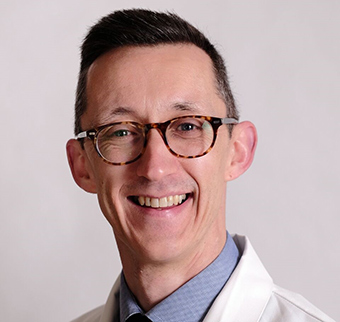New policy – new direction?
Over the past number of years, we have seen a shift in thinking in relation to the provision of dentistry in Ireland. This is characterised by the very definition of what we as dentists actually do for our patients. Are we providing dentistry or are we the guardians of our patients’ oral health? Or both? Are we dental surgeons or should we really consider ourselves oral physicians?
On that leafy summer’s day, when we graduated from our respective universities, our heads were crammed with various aspects of dentistry, from cavity preparation, bridge design, treatment of oral medical conditions and the intricacies of operative dentistry to paediatric dentistry, preventive dentistry and oral surgery/medicine.
The common theme, however, I would suggest, is based on one word: intervention.
It’s a nugget of inescapable truth to which our patients cling at all times. One has only to review the relatively low uptake of the PRSI and Medical Card Examination – both free to patients. Patients appear to place little store in items of service they perceive to be non-interventionist. How many times in our surgeries have we heard the words after a long examination: “So, you’re doing nothing for me today then?” This is usually uttered after an extensive inspection of soft and hard tissues, high-yield intra-oral radiographs, careful CPITN recording, a detailed medical and dental history etc.
The preventive, non-interventionist aspects of oral health such as oral hygiene instruction, dietary advice and timely treatment planning, which absorb a lot of surgery time, seem regrettably less valued by patients than the placement of a filling or removal of a tooth. And we are not alone in this regard; our general medical practitioner colleagues will also cite the issue of a prescription as the interventionist action that most patients seek.
This interventionist “yardstick” has traditionally been embraced by
At the time of writing, the new Oral Health Policy is imminent. It’s timely therefore to better understand the Common Risk Factor Approach (CRFA) which frames a lot of the thinking of the expected new policy. The CRFA takes a broader perspective and targets risk factors common to many chronic medical conditions and their underlying social determinants. The CRFA’s main concept is to devise a concerted approach to combat common health risks (and their social determinants) that will achieve improvements across a range of conditions more effectively and efficiently than the traditional disease-specific approach.
As a “boots on the ground” clinician, rather than talk in abstract, I prefer to take a practical example. The harmful synergistic nature of alcohol and tobacco and their cumulative effect on oral cancer rates is self-evident. Therefore both alcohol and tobacco are identified as common risk factors for oral health. Alcohol and tobacco are also risk factors for other systemic diseases. By educating our patients and engendering lasting changes in individual “lifestyle” behaviours in those patients, it will achieve improvements across general health – not just oral health.
This is both commendable and important if we, as a nation, plan to reduce the 7,000 deaths per year from smoking-related diseases (Slán, 2007) or the 28 per cent of adults who self-identified as “binge drinkers” (Slán, 2007).
However, this leads me back to where I started. Are we dental surgeons or oral physicians? Will the new Oral Health Policy have provision for training, support and funding for this evidence-informed approach to oral health? If we really are to play our part in the CRFA, are we to be recognised and rewarded for same? These, and other questions I hope will be answered by the new policy.
But, given the experience above from our patients, where patients exhibit low interest levels in non-interventionist treatment, it will be the patients, as well as the clinicians, who will need to be educated for this broad, fresh approach to oral healthcare provision to have an impact.
